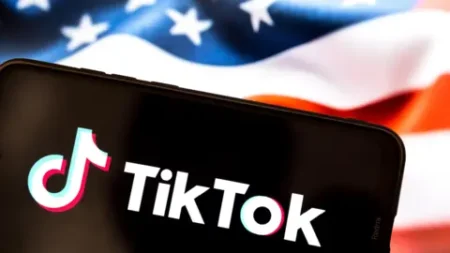The recent surge in Facebook groups facilitating the rental and sale of rideshare accounts like those for Uber, DoorDash, and Deliveroo has raised alarms about safety and fraud risks associated with these platforms. With over 22,000 members, a notable Facebook group titled “UBER ACCOUNT FOR RENT WORLDWIDE” exemplifies this alarming trend. This group is just a fragment of approximately 80 such groups identified in a report by the non-profit Tech Transparency Project (TTP). These groups operate as black markets, where individuals can bypass the stringent background checks and licensing requirements mandated by these rideshare companies.
The risks posed by these platforms extend to all users, who rely on safety assurances when choosing to ride with strangers or receive food deliveries. “If something were to happen,” remarked Katie Paul, TTP Director, “part of the reason Uber has been such an attractive tool for women, in particular, is because there’s some sort of semblance of safety when there’s tracking of who this person is.” The concern becomes particularly pronounced when unverified individuals can step into the shoes of authorized drivers, undermining the reassurance that users expect when using these services.
Meta, the parent company of Facebook, has responded to the findings. A spokesperson confirmed that the company would review the report and take action against any content violating its regulations. Following an intervention by CNN, five Facebook groups were removed for contravening Meta’s guidelines against scams and deceptive practices. The statement from Meta indicates a recognition of the potential dangers created by these groups and a willingness to take steps to mitigate such risks.
In response, companies like DoorDash have ramped up their countermeasures against account fraud. According to Julian Crowley, a DoorDash spokesperson, the company is rigorously enforcing its policies and deploying additional safeguards to deter unauthorized access to driver accounts. This tough stance has resulted in an increased number of fraudulent accounts being deactivated, as well as more stringent real-time identity checks for drivers.
Uber, too, has articulated a commitment to maintaining the integrity of its platform. A spokesperson emphasized that account sharing is strictly prohibited, and robust systems are in place to verify that users are indeed the rightful owners of their accounts. When fraud is detected, Uber acts decisively to ban those accounts and collaborates with law enforcement agencies to address illicit activities.
Despite these assurances, the problem is far from new. Back in 2019, Uber faced scrutiny in London, where regulators expressed concern over unauthorized drivers accessing the application and picking up riders using legitimate drivers’ accounts. At the time, Uber described such regulatory moves as “extraordinary and wrong,” emphasizing the extensive safety updates it had already implemented.
Tech Transparency Project’s research unveils the breadth of this issue, revealing the accessibility of Facebook groups where users can easily post requests or offers for active driver accounts. In a recent probe, it was found that simply searching “uber account” on Facebook led to immediate suggestions for rented accounts. Users commonly transitioned from public group postings to private messages, further obscuring the fraudulent nature of these exchanges.
This accessibility raises serious questions around both the accountability of these platforms and the accountability of Facebook itself in moderating fraudulent activities. In light of the overwhelming evidence, TTP has urged Meta to intensify its enforcement against these black-market operations, advocating for an increase in human moderation in addition to automated tools for better efficacy.
The need for robust regulations continues to grow, especially as incidents tied to unauthorized delivery drivers unfold. In Wilbraham, Massachusetts, a notable case involved a man accused of assaulting a woman after delivering through Uber Eats, sparking deeper discussions about the safety of such services.
While existing measures from ridesharing companies are a step in the right direction, the Tech Transparency Project insists that more avenues must be explored to prevent unauthorized individuals from posing as legitimate drivers. With reports suggesting that many Facebook groups remain active and successful despite previous attempts at regulation, the threat of fraudulent activities looms large, emphasizing the urgent need for effective solutions to uphold safety in the rideshare industry.











